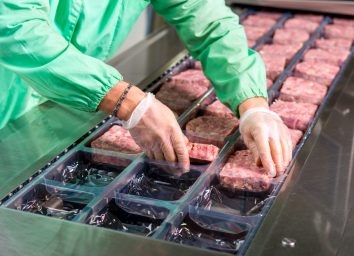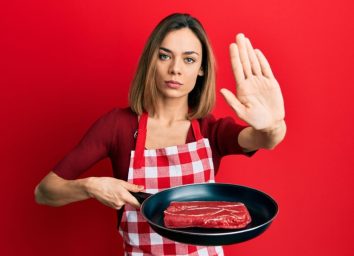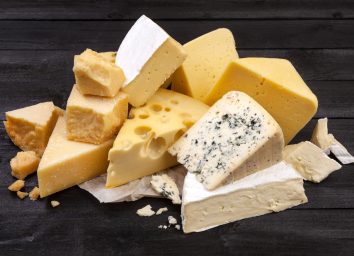What Happens to Your Cholesterol When You Eat Red Meat
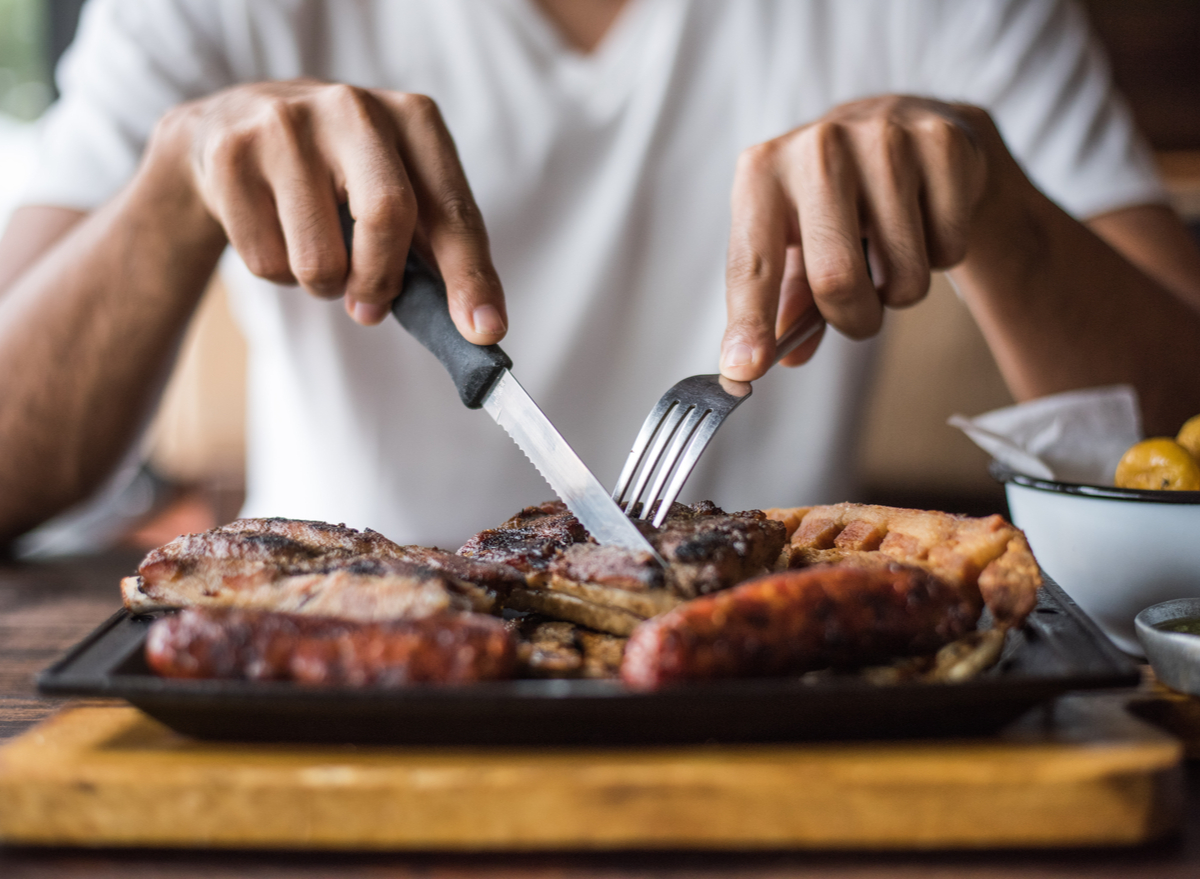
With almost 40% of Americans having high cholesterol, it is no wonder why people are constantly trying to find ways to maintain healthy levels. From avoiding smoking tobacco to including exercise in daily habits, there are some standard practices people take on to help reduce their cholesterol values. But when it comes to our diet, some tips are a bit less-clear if we want to see those levels start trending down. Sure, we know that drinking sugary soda and eating fried chicken with the skin on are pretty much no-no’s when trying to support healthy cholesterol values. But when it comes to eating red meat, the recommendations become a bit murkier.
Because of this, many people may wonder—what happens to your cholesterol when you eat red meat?
What causes high cholesterol?
Understanding meat’s effect on cholesterol takes an understanding of what causes high cholesterol in the first place. Having high cholesterol is a common problem many Americans face, and having it can put a person at an increased risk of coronary heart disease, stroke, and even early death among certain populations.
Many factors can play into a person’s risk of developing high cholesterol, with some being completely out of a person’s control. According to experts, lack of physical activity, smoking tobacco, and having obesity can all play into a person’s risk of experiencing elevated cholesterol levels. And when it comes to heredity, having a family member with high cholesterol can put you at risk of experiencing the same condition, even if your lifestyle practices are picture perfect.
Diet plays a big role
Your dietary choices can have a profound impact on your cholesterol levels as well. Following certain dietary patterns have been shown to keep healthy cholesterol levels in-check, while others are linked to resulting in people having cholesterol levels that can skyrocket. Diets that are rich in healthy fats, oats, whole grains, produce, seeds, and nuts tend to be your best bet when trying to maintain healthy cholesterol. And at the same time, avoiding sugary foods and items that are rich in saturated fat may help keep cholesterol levels within an ideal range too.
Saturated fat is particularly to blame
Because eating more saturated fat may be linked to higher LDL “bad” cholesterol levels, people who are focused on maintaining healthy cholesterol values are sometimes advised to avoid sources of saturated fat, including red meat, as these foods are natural sources of saturated fat.
But eating red meat may not be as bad for your overall cholesterol as people are lead to believe, especially when this food is consumed as a part of an overall healthy dietary pattern.
Does eating red meat cause high cholesterol?
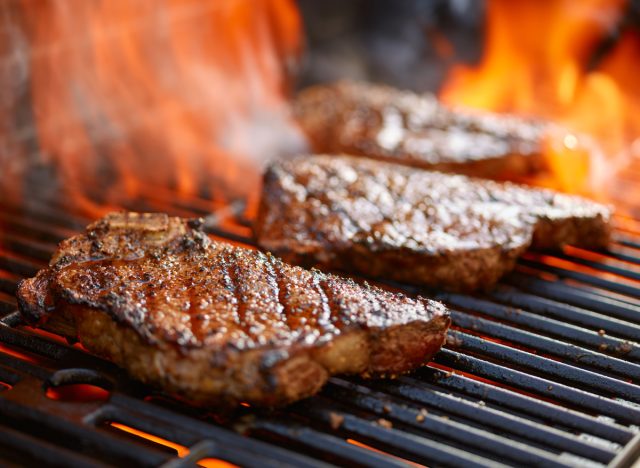
It is true that certain cuts of red meat are high in saturated fat, a nutrient that, when consumed in excess, can be linked to elevated cholesterol levels. Because of this, it is common to hear that you should reduce your intake (or even avoid your intake) of red meat when you are managing your cholesterol.
But is eating red meat a surefire way to increase your cholesterol levels?
Unfortunately, the answer to that question depends on a few factors.
Sure, there are cuts of red meat that are rich in saturated fat—think short ribs and t-bone steaks—and can contribute to high cholesterol levels when consumed often and along with other foods that contribute to high cholesterol levels.
Additionally, people who eat more red meat tend to follow more unhealthy dietary patterns, including drinking more sugar-sweetened sodas and consuming more alcohol. Therefore, observational studies may tend to suggest that eating more red meat is linked to elevated cholesterol levels when it is instead the overall lifestyle and dietary choices that red meat eaters choose to follow that are contributing to this health risk.
So, yes, eating large portions of high-fat red meat while making other unhealthy dietary choices can result in higher cholesterol levels.
But at the same time, eating reasonable portions of leaner cuts of red meat along with nutrient-dense and heart-healthy foods does not appear to contribute to the same concern.
Including red meat alongside a healthy eating pattern may not necessarily raise cholesterol levels
If you are eating 3-4 ounce servings of lean beef along with lots of veggies, whole grains, and healthy fats, you may be surprised to see that your cholesterol levels can very well remain within normal limits.
According to data published in the American Journal of Clinical Nutrition, following a Mediterranean diet that contains small portions of lean beef helped lower LDL cholesterol. And another study showed that when included in a low saturated fat, heart-healthy dietary pattern, eating specific quantities of lean beef did not result in elevated cholesterol levels.
Takeaway
If you are a red meat lover, there are a few tips you can follow to keep your cholesterol levels in check:
- Opt for lean cuts like flank steak, strip steak, or top round
- Stick to a 3-4 ounce portion
- Pair your meat with lots of veggies, healthy fats, and whole grains instead of refined bread, fried potatoes, and sugary desserts
Follow these tips, and you should be able to enjoy red meat in a cholesterol-friendly way without compromising on your favorite flavors.
RELATED: Side Effects of Too High Cholesterol

